Mulch: [Examples, Materials and How to Make a Homemade One]
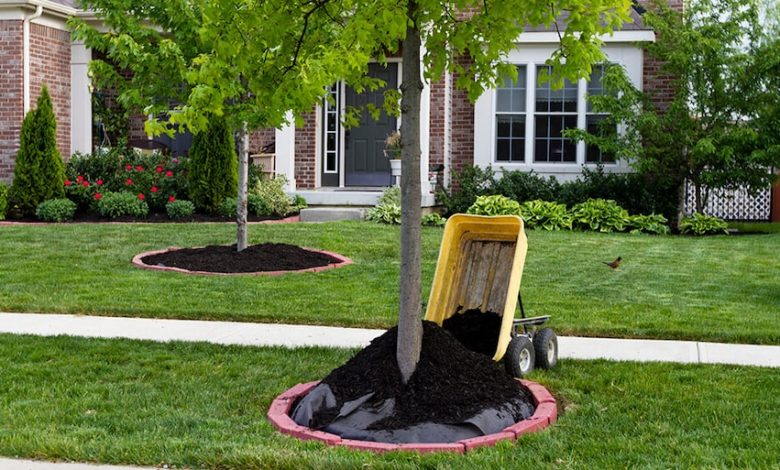
Mulch is a set of organic matter that is used in soils to modify some of its properties. This makes it more efficient in terms of plant growth, which greatly improves production capacity.
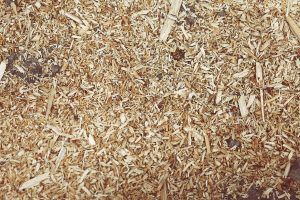 Mulch can be created from natural elements or with synthetic aids.
Mulch can be created from natural elements or with synthetic aids.
Are you interested in learning more about how mulch is used and how you can take advantage of it in your orchard or garden?
You may have come to the right article
What is mulch?
Mulch is an organic support that is placed around growing plants to add some benefits to them.
The main one is to provide nutrients to the plants and thus ensure that they can develop in good health.
What is mulch used for?
Mulch mainly has these benefits:
- Improve moisture retention capacity.
- Provide more nutrients to the soil.
- It prevents weeds from growing to a large extent.
- Provides a greater visual benefit to crops and/or orchards.
Increased amount of nutrients in the soil
Mulch is used for various purposes, although the main one is related to providing organic matter and nutrients to the land where you are going to plant your crops.
Because organic matter is added, plants have the opportunity to obtain more nutrients from the soil.
temperature regulator
But it also serves as a temperature regulator, allowing the roots to be protected from environmental effects.
Progressive release of nutrients
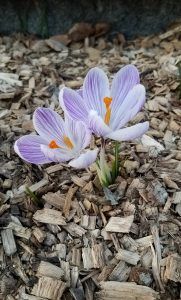 Another interesting fact is that it carries out a progressive release of nutrients, which makes the plants find them day after day.
Another interesting fact is that it carries out a progressive release of nutrients, which makes the plants find them day after day.
Generally speaking, mulch is used to help plants be protected and grow healthier.
What are the benefits of making a mulch?
The benefits of making a mulch are some such as: maintaining humidity, soil care, avoiding weeds and providing a better environment.
Mulch: a cheap and excellent thermal regulator
As for moisture, mulch works efficiently to retain water, which helps plants not suffer from drought.
This condition is even more valuable on summer days, where the heat contributes to the evaporation process and speeds it up, drying out the land. When there is mulch, the chances of the soil drying out are decreased and the plants can have an appropriate moisture level.
Protects from frost
The opposite situation must also be considered, that is, when there are frosts and temperatures drop. The mulch protects those temperatures from killing the roots.
Protect soil quality
Soil care is another aspect worth noting because mulch protects it from external environmental effects.
In this way it is able to have a composition closer to how it is naturally, without affecting its fertility conditions.
Prevents and prevents the growth of weeds and weeds
A third point, and that is very valuable to avoid excessive work when sowing, is that it prevents the growth of weeds.
This greatly reduces the time farmers and gardeners spend removing these invasive plants, and also prevents them from robbing the plants that were planted of nutrients.
Is prettier
Finally, we must bear in mind that on a visual level it provides a better environment because everything looks more orderly and clean.
What types of mulch are there?
Mulches can be classified into two large families: organic and synthetic.
organic mulches
In organic mulches what we find is living matter made up of nutrients. As time passes, they are released by giving them to the plants.
Within this group are elements such as dry leaves, grass clippings, straw, among others.
synthetic mulch
Regarding the subject of synthetic mulch, it has the property of helping to regulate certain soil conditions more quickly.
For example, synthetic mulch can help the area where it is used maintain a level of moisture longer than organic mulch. However, these mulches do not offer any type of nutritional contribution.
The issue is that there are times when its use is almost mandatory. One case is in late frosts, since black plastic can be used on them to protect the crops.
Other synthetic mulches are gravel, rubber, and stones.
What materials is mulch made of?
- Organic waste: dry leaves, grass clippings, straw, among others.
- homemade organic matter such as Compost: they must be completely composted remains, to avoid possible diseases.
- Chunks of rubber.
- Synthetic or plastic mulch.
- Rock, gravel.
- Straw, wood, chips, bark, moss…
How can we make a mulch?
To make organic mulch, the procedure will be similar to compost, with the difference that it is much faster.
In addition, the compost is usually prepared elsewhere and applied to the soil when it is ready.
The mulch, on the other hand, is made directly on the ground.
So, the procedure will be like this:
- Collect materials that are grouped by brown, green, and earth colors. In the brown will be the dry leaves and in the green, the remains of grass, remains of fruits and vegetables, etc. Nothing cooked.
- In the area where the mulch will be done, apply a first layer of dry material, then a layer of green material, and finally a layer of soil.
- You will have to moisten all this with some water without flooding.
- Depending on the thickness of the mulch you hope to achieve, you will repeat the first three steps, always making sure to moisten the soil afterwards.
- Every two weeks you will have to remove the entire area where you have applied the layers. This helps bring air in and helps humidity reach lower levels.
- In the mulch, unlike compost, we will not use manure either.
How is it different from the substrate?
The substrate is the medium used for a plant to develop. Although it may contain soil, it is a mixture of various components.
For its part, the mulch is what is used to protect the substrate, to keep it isolated from the environment.
This means that the substrate applies the base for the plant to develop and then the mulch is placed. Its very name refers to a kind of protective mantle that helps the plants to be much more cared for.
But in addition, the substrate itself does not provide any nutrients unless it is added to it, while the mulch (if it is organic) can.
For a crop to work properly, it will need to have both elements and even a third: compost.
So if you already had your plants in the garden or pot and applied the compost but had forgotten the mulch, it’s about time you start using it.
Bibliography and references
- https://en.wikipedia.org/wiki/Mulch
- https://agrilifeextension.tamu.edu/browse/featured-solutions/gardening-landscaping/el-mulch/
- Litter production and decomposition in a moist premontane secondary forest.
- Book: The Formation of Vegetable Mulch, by the Action of Earthworms by Charles Darwin.
- Book: Create and manage a school garden. A handbook for teachers, parents, and children.
- Book: America’s garden book by James Bush-Brown.

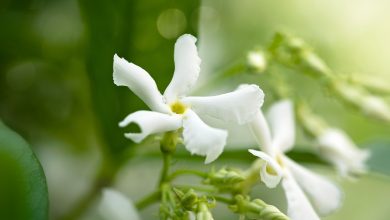
![Photo of Tagete: [Cultivation, Care, Irrigation and Reproduction]](https://www.complete-gardening.com/wp-content/uploads/2022/08/tagete-cultivation-care-irrigation-and-reproduction-390x220.jpg)
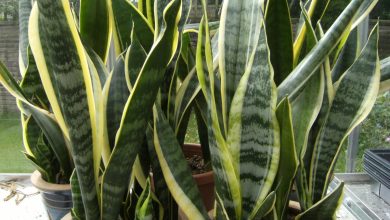
![Photo of Prune Cherry Trees: [Importance, Season, Tools, Considerations and Steps]](https://www.complete-gardening.com/wp-content/uploads/2022/08/prune-cherry-trees-importance-season-tools-considerations-and-steps-390x220.jpg)